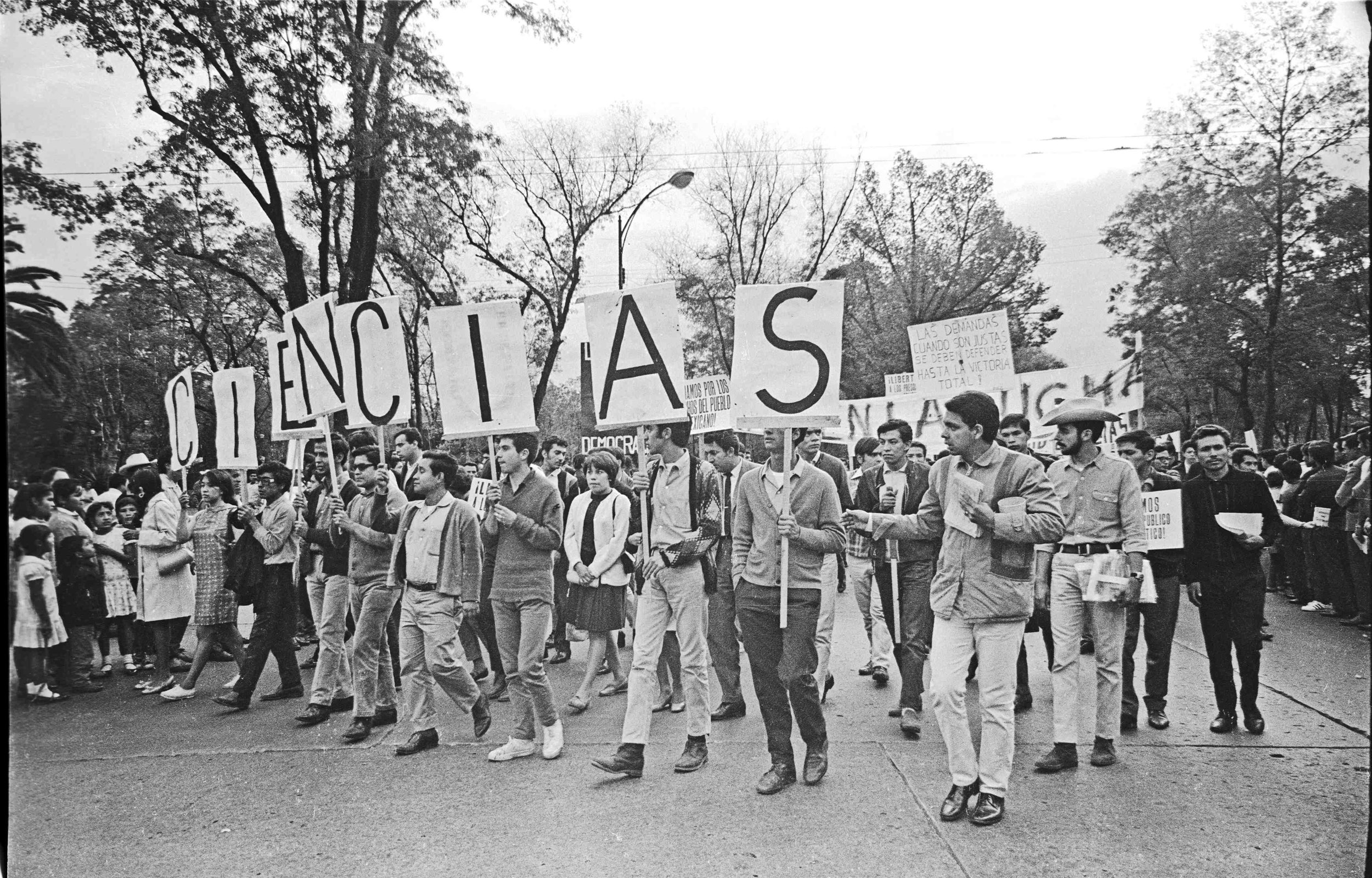SNCC Memorandum of Solidarity with the Students of Mexico, October 1968
Primary Document by Student Nonviolent Coordinating Committee
In 1968, students throughout the world challenged their governments’ policies and practices. Students organized demonstrations in Egypt, Italy, Yugoslavia, the United States, Uruguay, and France.
Mexico was no exception. Students organized to protest the lack of true democracy in Mexico. One party, the Institutional Revolutionary Party (PRI), had dominated the political system for decades. Every president of Mexico since 1929 had been from the same party. (This did not change until Vicente Fox and the National Action Party, or PAN, were elected in 2000.) The Mexican student movement galvanized popular discontent and exposed vast contradictions in the government and other institutions.
The Mexican government was threatened by the burgeoning democratic movement as the world’s gaze shifted to the upcoming Olympics in Mexico City. Every effort that students made to raise a voice of protest was met with repression. In an effort to silence the dissent, the police and army occupied the university campus.
The tension began in July, but the climax came on October 2, 1968 — 10 days before the Olympic games were to begin in Mexico City. On this date, the police and army fired on thousands of demonstrators. Hundreds were killed, thousands were beaten and jailed, and the government did its best to sweep the incident under the rug. The tragic incident of October 1968 took place in the same location as the Spanish massacre of the Aztecs at Tlatelolco almost 500 years before.
Student demonstration, Mexico, August 13, 1968. Marcel·lí Perelló
TO THE STUDENTS OF MEXICO:
In 1960, Afro American students in the Southern United States launched a movement which has today become a national liberation struggle. Those students were not the first Blacks to fight for freedom; our struggle is centuries old. But it was those students who gave us new impetus. Their efforts led to the emergence of new ideas, new forms of struggle, a new understanding of the enemy, and a new determination to accept nothing less than full liberation.
Since 1960, and particularly this year, the world has seen students of all colors and nationalities explode in rebellion against the forces of oppression. We in the Black movement of the United States welcome the students’ actions, for we know they are blows struck — directly or indirectly — against our own enemies: racism, colonialism, and capitalism, as personified in the United States together with the foreign governments which it controls and maintains.
We of SNCC are heartened by your courageous struggle — the longest and bloodiest struggle waged this year by any group of students. You are children of an ancient conquest and of a longstanding colonialism — and so are we Afro Americans. You belong to the “Third World” — and so do we Afro Americans. You too live under a government which maintains a facade of democracy, while using a combination of repression and co-optation to sustain its control. You too are a people who have been despised by the white man — the Yankee, the gringo — for your color, your culture, your so-called ignorance, your poverty. The differences which exist between your people and ours are far less important than the common experiences which link us.
Our struggle is indivisible, no matter how much national patterns may vary. We do not want to proclaim a false unity; we know that unity is not merely a word but the product of much work and even sacrifice. But we recognize your actions as being significant and helpful to us. When one of you dies in battle, it is a loss to us. When hundreds of you are imprisoned, to face an unknown fate, it is part of our struggle — and an experience which we know ourselves all too well.
We send you our support and hopes. We salute your determination persistence and bravery. Above all, we have pledged ourselves to continue our fight here — at whatever price and by any means necessary. We believe that the best help we can render is our own battle against the forces of racism, colonialism, and capitalism. That is the message we send you today.
James Forman
Director, International Affairs
October, 1968

